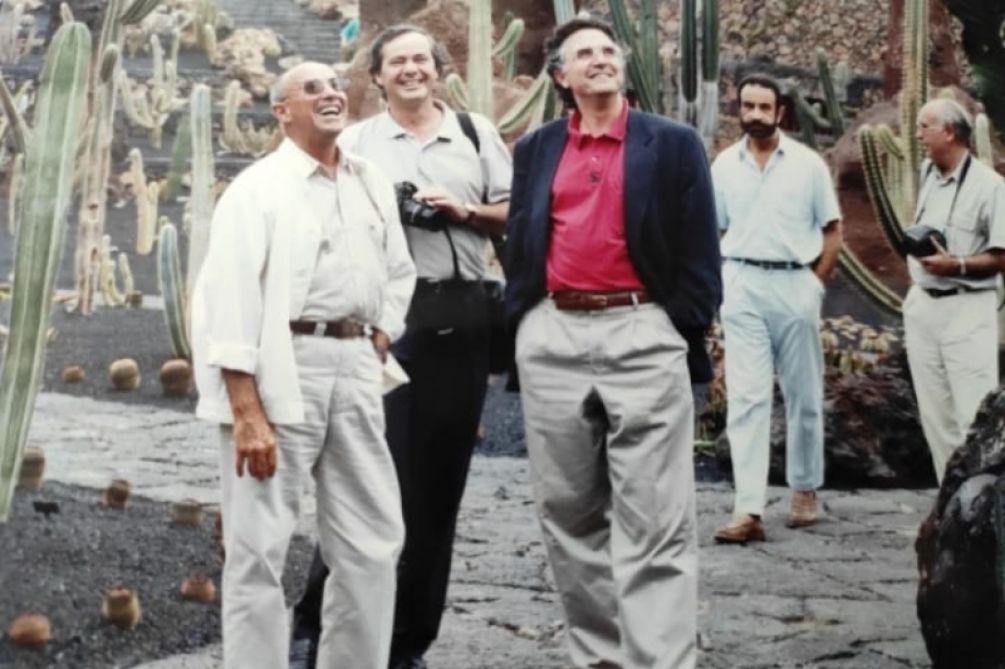Thirty years after the adoption of the First World Charter for Sustainable Tourism in Lanzarote, its message remains more relevant than ever. This commemoration invites us to reflect on the progress and challenges of sustainable tourism, as well as to renew the global commitment to a fairer, regenerative model aligned with the Sustainable Development Goals. On July 2, 2025, Lanzarote will once again become the epicenter of this movement with the revision of this charter.

Exactly three decades ago, in April 1995, the tourism world took a significant step forward from the island of Lanzarote. Representatives from governments, international organizations, academic experts, and industry stakeholders gathered there to adopt the First World Charter for Sustainable Tourism, a pioneering document that, 30 years later, remains as relevant as ever.
At Biosphere, we wish to commemorate this anniversary not only as a historical milestone but also as an opportunity to reflect on the journey taken, the challenges that persist, and the hope for truly regenerative and fair tourism for all. Additionally, we announce that on July 2, thirty years later, the island will once again host its third international revision.
The 1995 Charter was the result of the World Conference on Sustainable Tourism, held in Lanzarote under the auspices of UNESCO and with the support of the World Tourism Organization (UNWTO). This declaration established 18 fundamental principles to guide tourism development from a sustainability perspective, integrating environmental, cultural, social, and economic criteria.
Inspired by the 1992 Rio Declaration, the Charter recognized the enormous potential of tourism as a development engine but also warned of the risks of its unregulated growth. Environmental conservation, respect for local cultures, and equitable distribution of benefits thus became essential pillars for the sector's future.
Thirty years later, tourism has changed significantly. It has evolved from being a luxury accessible to a few to becoming one of the most globalized and democratized activities on the planet. However, with this expansion, its ecological footprint, impact on local communities, and role in sustainability debates have also grown.
Thanks to tools like the Biosphere certification, there are now clear and verifiable instruments that allow destinations and companies not only to measure their impact but also to transform their models in line with the 17 United Nations Sustainable Development Goals.
Nevertheless, progress remains uneven, and the challenge of making sustainability the new global standard—not an exception—persists.
In 2015, on the 20th anniversary of the first Charter, the World Conference on Sustainable Tourism +20 was held, leading to the Second World Charter for Sustainable Tourism. This reaffirmed the foundational principles and incorporated new priorities such as:
This evolution demonstrates that sustainability is not a destination but a continuous process requiring adaptation, collective commitment, and long-term vision.
In a global context marked by climate crises, geopolitical tensions, and profound social transformations, returning to the foundational principles of sustainable tourism is not looking to the past but securing the future.
The 1995 Charter continues to remind us of something essential: "Tourism development must be ecologically sustainable, economically viable, and socially equitable".
That is, there is no sustainable tourism without social justice, nor economic progress that matters if it depletes the resources it depends on.
From the Responsible Tourism Institute (RTI), the entity that promoted this Charter from its inception, and through the Biosphere certification system, we work daily to translate the Charter's principles into concrete and verifiable actions.
Today, thousands of companies and destinations in over 70 countries are part of the Biosphere Community, a global network that promotes mutual learning, continuous improvement, and the visibility of best practices aligned with the SDGs.
Our commitment is not only technical or methodological: it is ethical, social, and cultural. Because every action, every decision, and every step towards a more sustainable tourism model contributes to the common goal.
This 30th anniversary is not just a celebration; it is a call to action:
Sustainable tourism is not a utopia. It is a necessity. But also an immense opportunity to reimagine how we relate to the world, to others, and to ourselves.
Lanzarote was just the starting point. Today, the challenge is global. That is why we are meeting again, thirty years later, at the 2025 World Conference on Sustainable Tourism, to define a new updated version of this Charter, with new challenges and objectives: the +30 World Charter for Sustainable Tourism.
The meeting will take place on July 2, 2025, on the island of Lanzarote, in the Canary Islands, Spain. An international event set in the incomparable framework of the Jameos del Agua.
Thirty years after the First World Charter for Sustainable Tourism, we at Biosphere renew our commitment to tourism that protects, transforms, and connects, and that, leaving no one behind, inspires us to continue moving forward with hope.
Because there is no sustainable tourism without the sustainability of life. And that is everyone's responsibility.
*Photo: From left to right, César Manrique, Cipriano Marín, Tomás de Azcárate and Bang, active participants in the First World Charter for Sustainable Tourism during the World Conference on Sustainable Tourism, held in Lanzarote, Canary Islands, Spain, from April 24 to 29, 1995.